While the ide3a project has concluded, the Smart Water Networks department of TU Berlin is continuing education in the thematic realm of ide3a, as exemplified by the lecture series titled “Advances in Water Management and Climate Adaptation.” This course is scheduled every Tuesday from October 17th, 2023, to February 6th, 2024, taking place in person at TU Berlin and being streamed online, guest speakers will be either in person or connected online.
The lecture series on “Advances in Water Management and Climate Adaptation” is a comprehensive course designed to explore the latest techniques, tools, technologies, strategies, and policies in managing water resources and adapting to the challenges posed by climate change. Tools and technologies will include, among others, advanced modelling techniques, digital technologies, remote sensing, geographic information systems. Water management and climate adaptation strategies and policies will unpack the intertwined relationship between environmental, technological, societal, and economic stakes, and include topics related to climate justice, multi-objective optimization, risk and conflict management, and multi-sector dynamics under uncertainty.
Following an introductory session, different early-stage researchers from international universities, research institutions, technology centers, and policy institutes will present cutting edge research, projects, lessons learned, challenges and visions on water resources management and climate adaptation. Each lecture will have an approximate duration of one hour, followed by interactive discussions involving attending students and the lecturer.
Assessment includes weekly quizzes based on the lecture content and a concise final report focusing on one of the topics covered in the lecture series.
While a background in topics related to water resources management, hydrology, hydraulics, environmental systems analysis, or related fields is recommended, it is not a strict requirement for participation. Participants will earn 3 ECTS credits for their engagement in this course.
We extend a warm welcome to external participants, for details follow the link below.
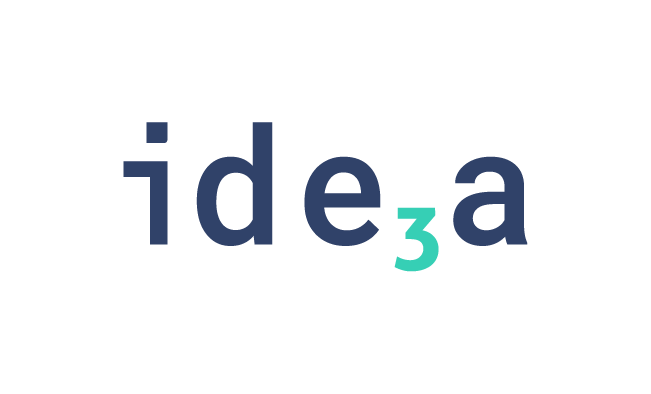
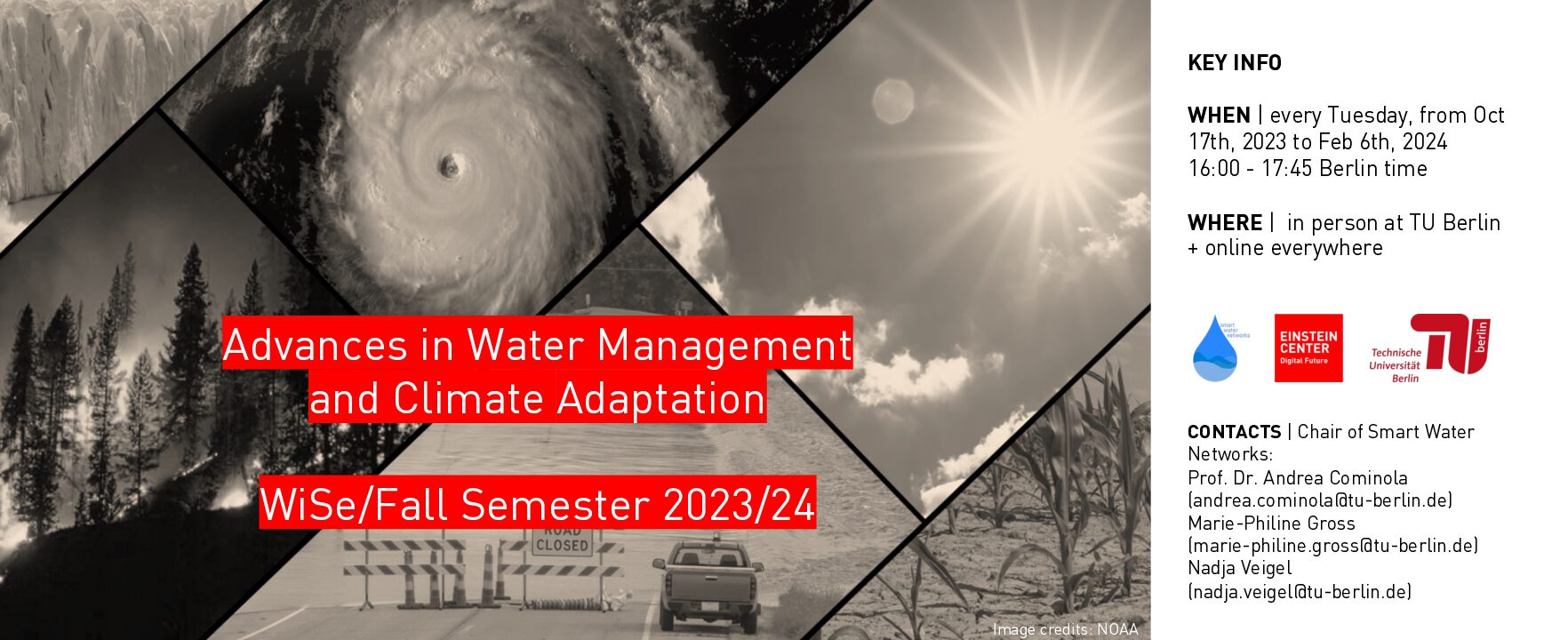
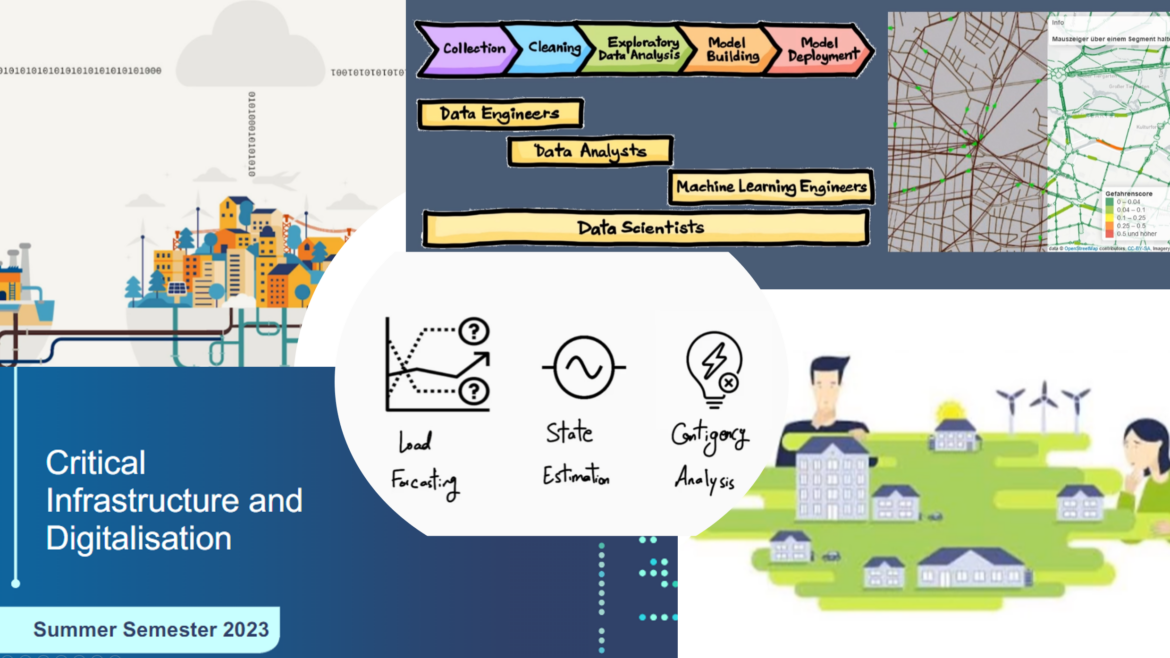
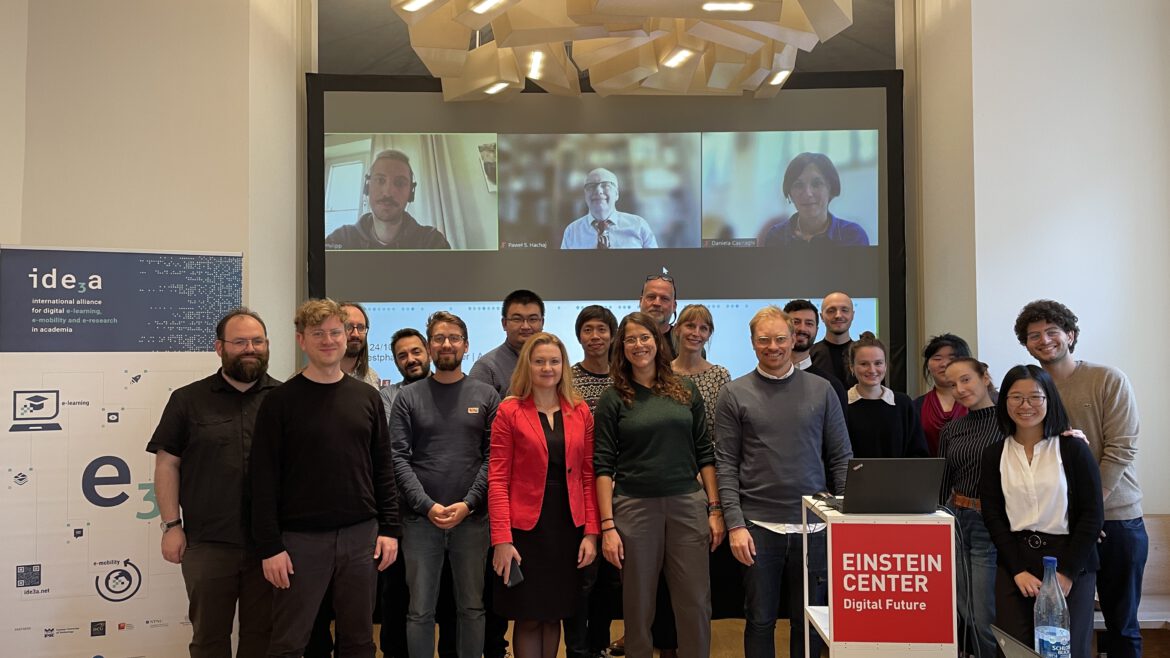
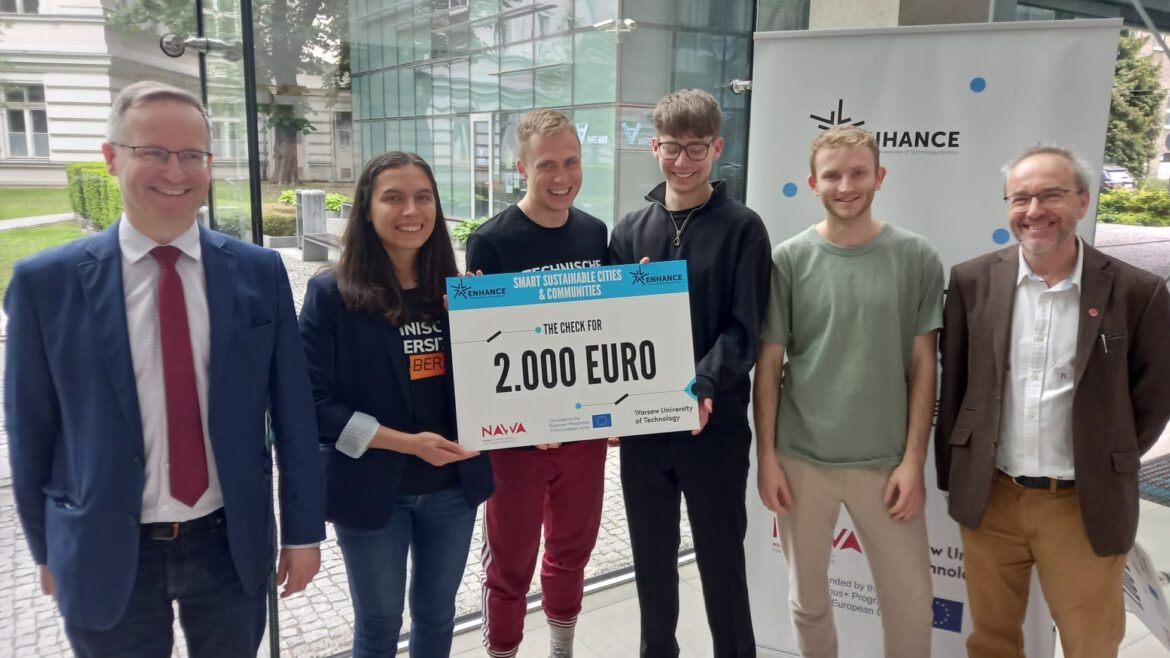
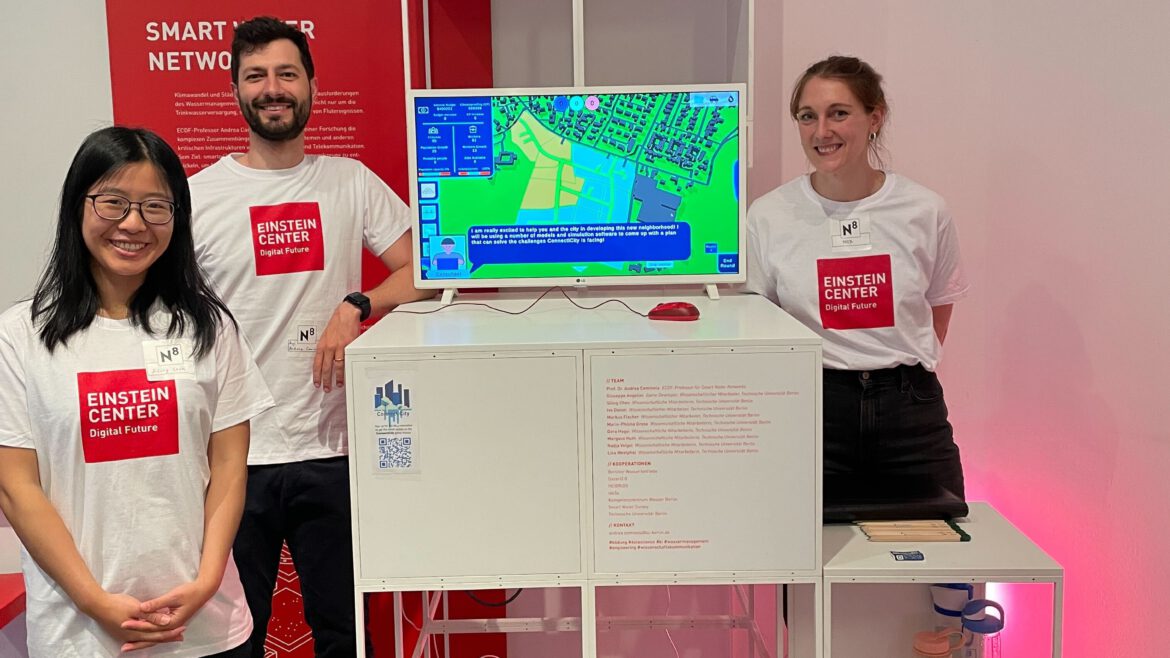
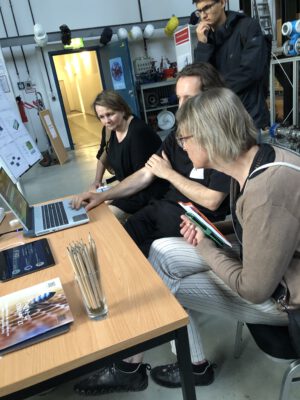 Climate change and urbanization are posing major challenges to sustainable urban development, which needs to address the increasing risk of extreme hydroclimatic events such as flooding, population growth, growing demands for resources, housing shortage, and increased traffic. ConnectiCity is a serious game which has been developed by the ide3a project partners with the aim to provide its player base with comprehensive understanding of the aforementioned challenges, their impact on interconnected critical urban infrastructure systems, and possible solutions to effectively mitigate them in an interactive educational environment.
Climate change and urbanization are posing major challenges to sustainable urban development, which needs to address the increasing risk of extreme hydroclimatic events such as flooding, population growth, growing demands for resources, housing shortage, and increased traffic. ConnectiCity is a serious game which has been developed by the ide3a project partners with the aim to provide its player base with comprehensive understanding of the aforementioned challenges, their impact on interconnected critical urban infrastructure systems, and possible solutions to effectively mitigate them in an interactive educational environment.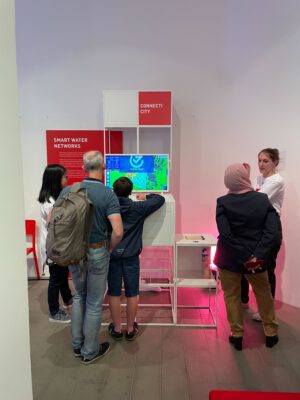 Teams of experts were assigned to each location, instructing visitors allowing them to not only learn about the scientific background of ConnectiCity but also to experience the game firsthand with guidance from these knowledgeable teams. The response from visitors of all ages was overwhelmingly positive, as they immersed themselves in the gameplay and engaged in thought-provoking discussions about the challenges facing sustainable urban development.
Teams of experts were assigned to each location, instructing visitors allowing them to not only learn about the scientific background of ConnectiCity but also to experience the game firsthand with guidance from these knowledgeable teams. The response from visitors of all ages was overwhelmingly positive, as they immersed themselves in the gameplay and engaged in thought-provoking discussions about the challenges facing sustainable urban development.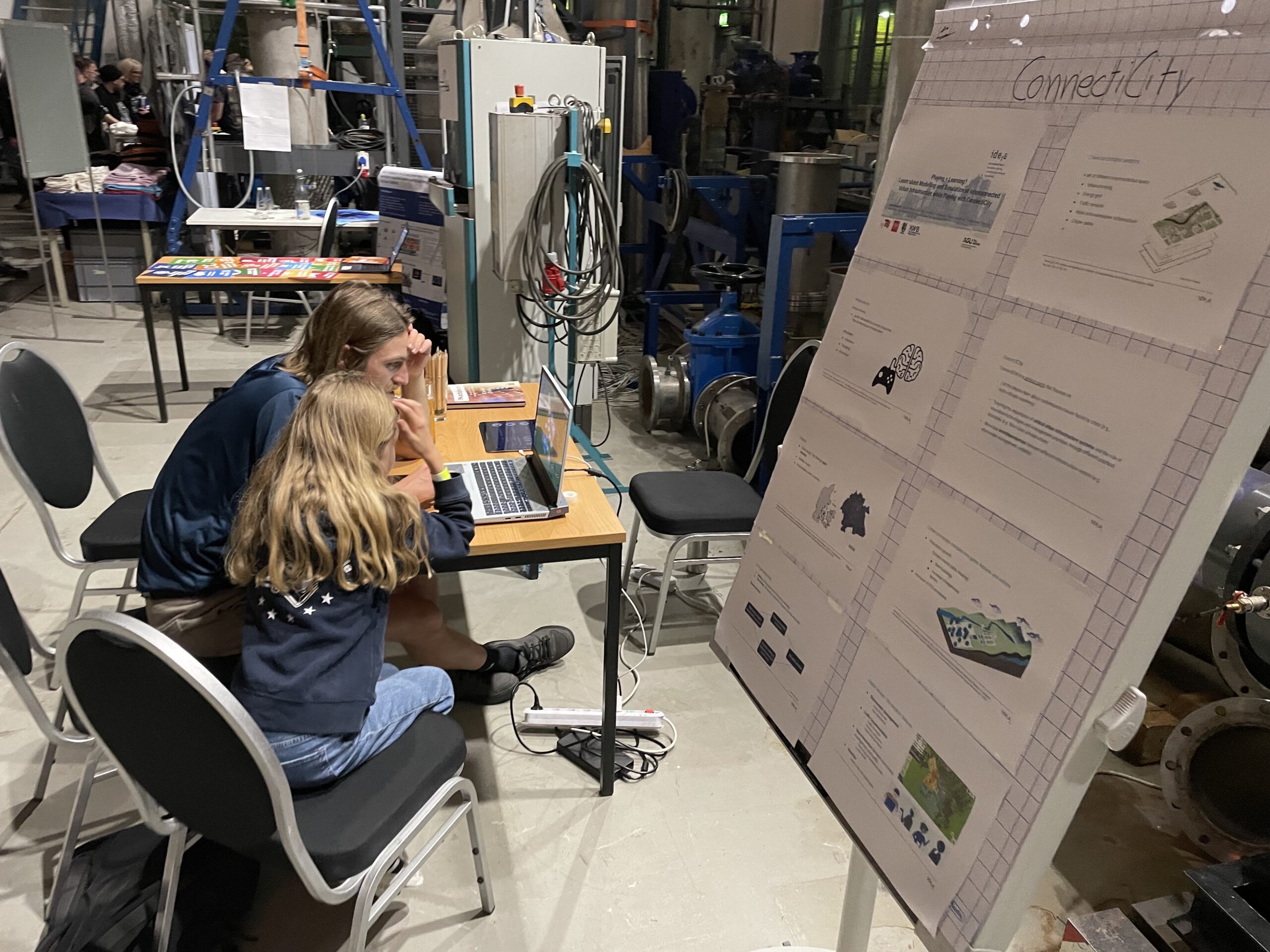
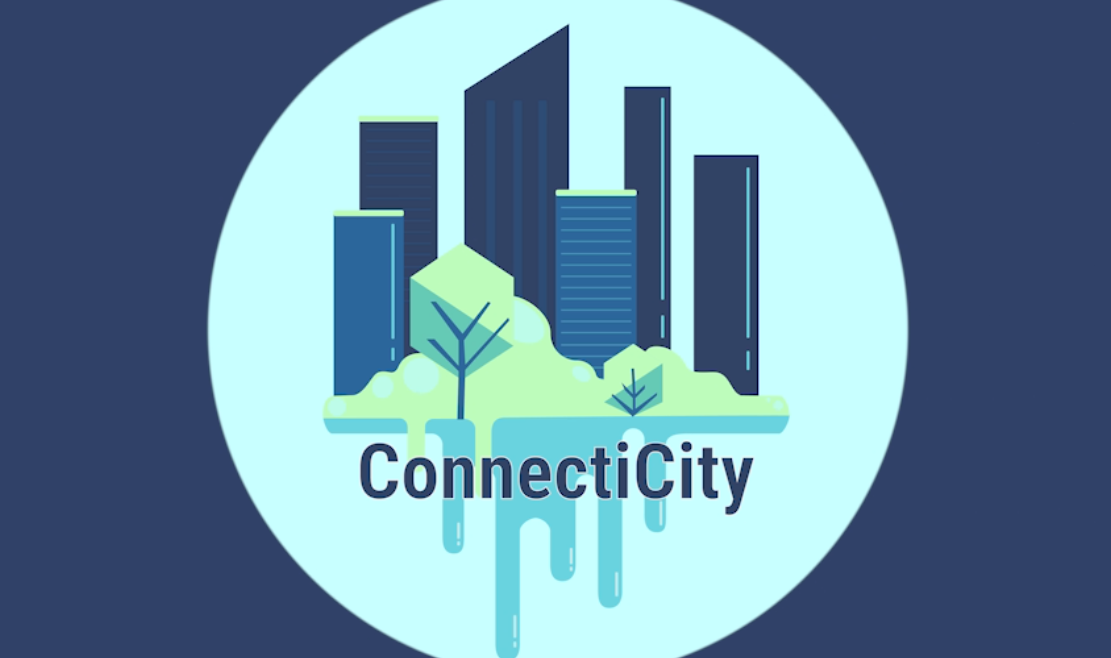
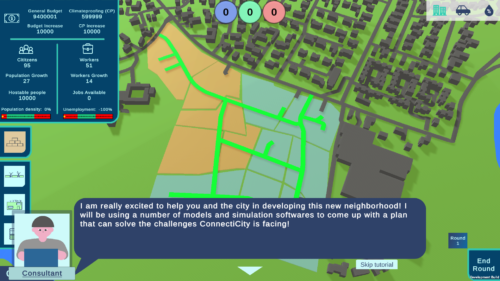

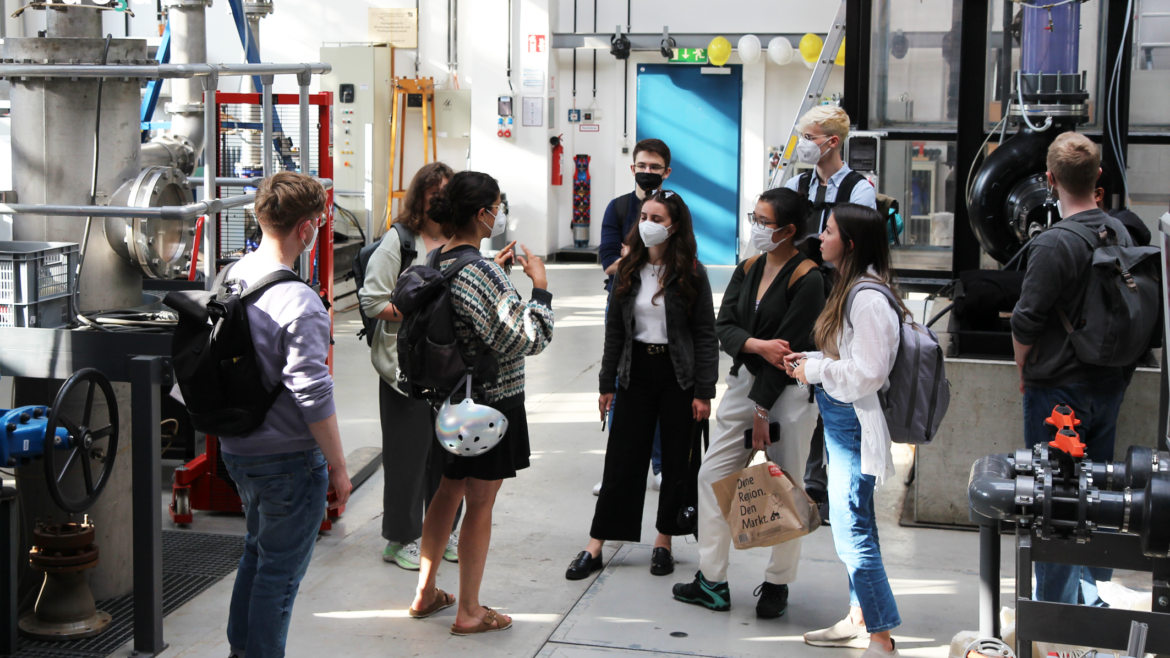
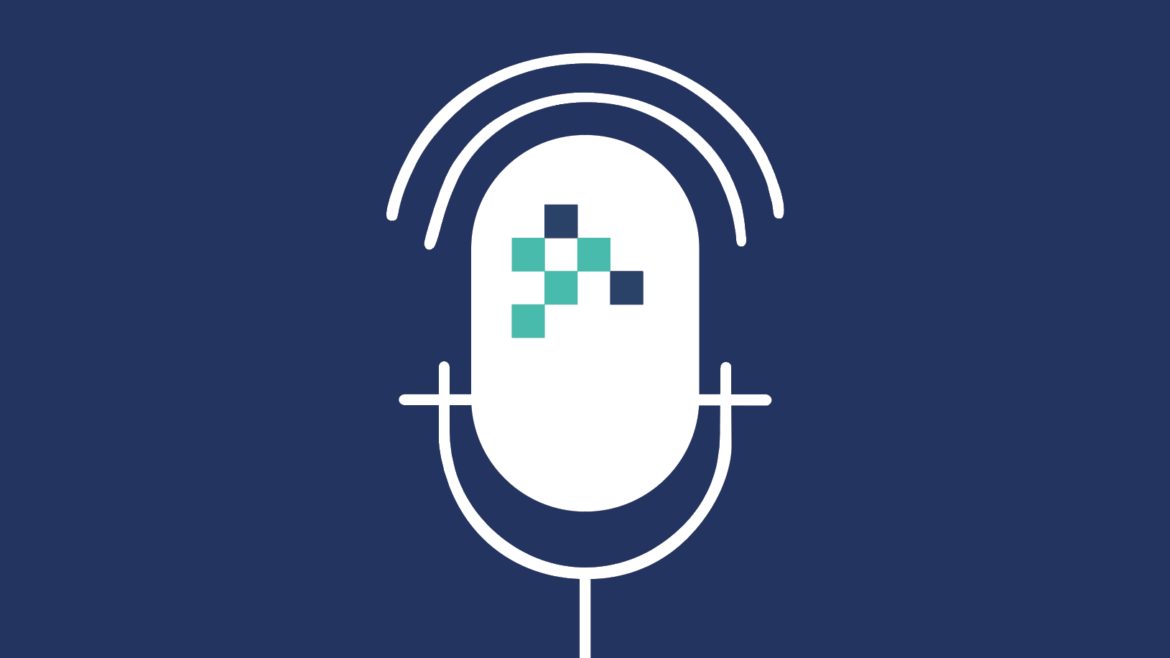
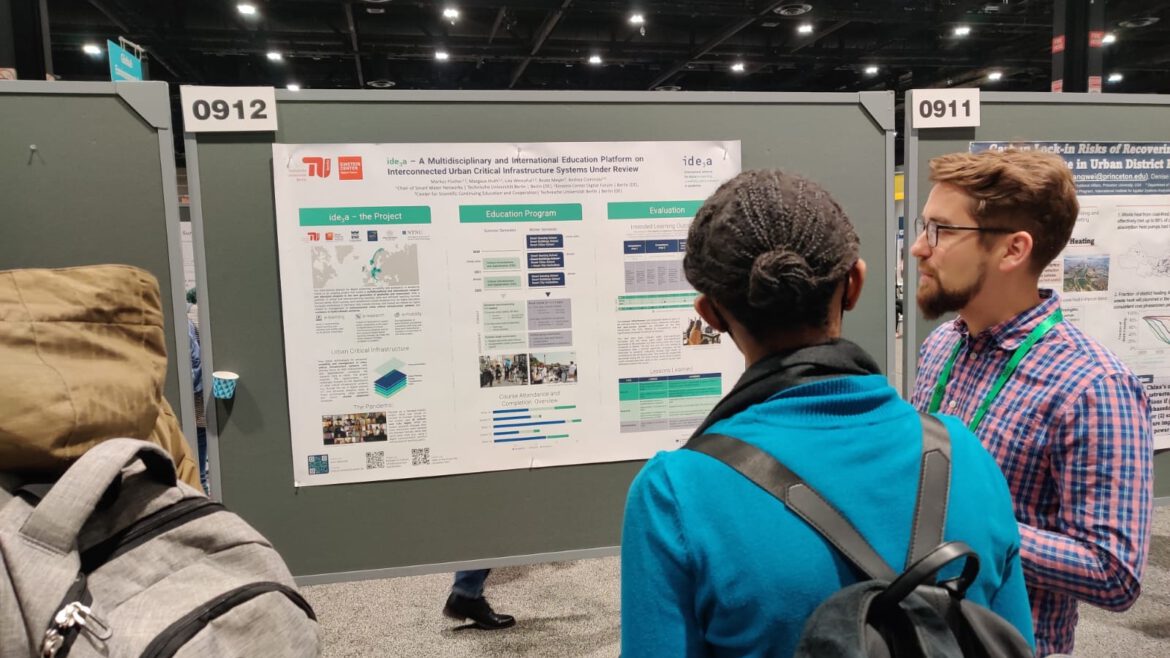
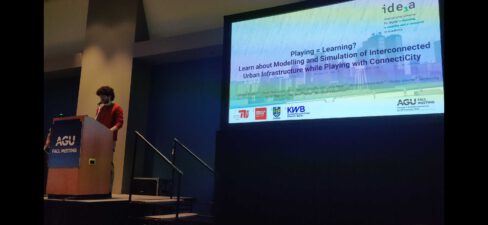
 We once again, would thank Giuseppe Angelini and Markus Fischer for the participation as well as the organizers of AGU for this amazing opportunity.
We once again, would thank Giuseppe Angelini and Markus Fischer for the participation as well as the organizers of AGU for this amazing opportunity.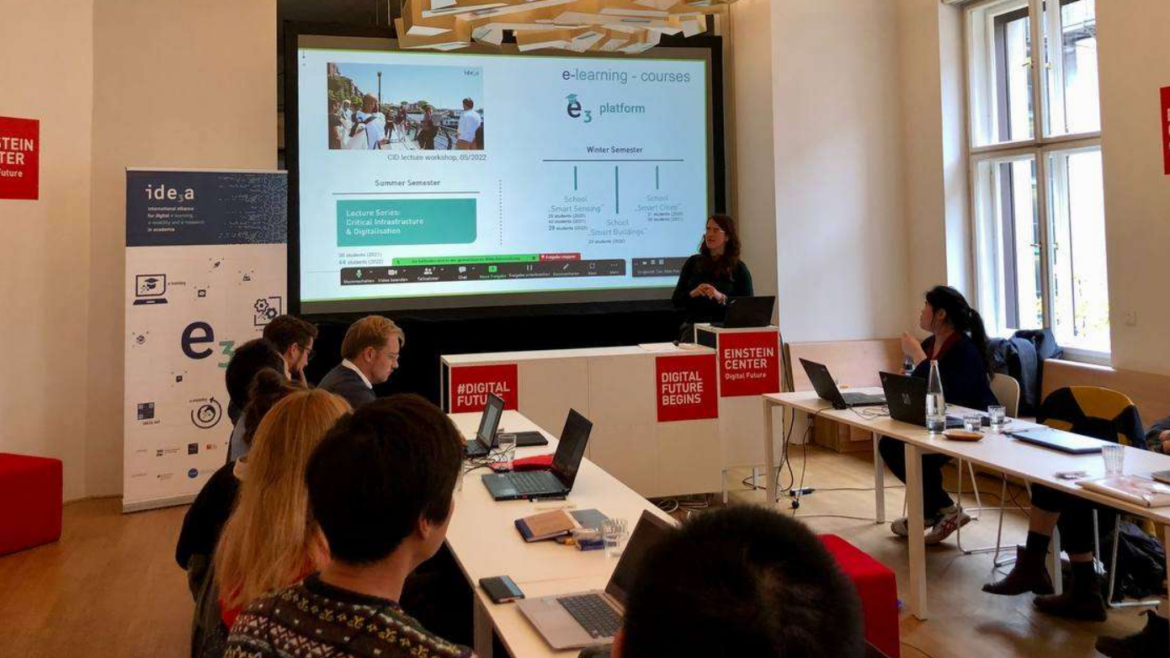
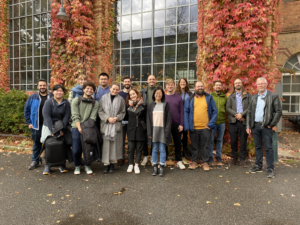 One of the highlights of the conference was the presentation of ConnectiCity which is a serious game on urban water networks and interconnected infrastructure. Despite the game still being under development by a research group of the ide3a team the game already shows a promising potential regarding its teaching purposes receiving not only positive but also insightful feedback from the participants of the conference to tune the further development of the game. The goal is to release ConnectiCity as an open-source game allowing students to get a grasp about the relation between urban water networks and urban mobility while also allowing the students as well as teaching personnel to customize the settings of the game.
One of the highlights of the conference was the presentation of ConnectiCity which is a serious game on urban water networks and interconnected infrastructure. Despite the game still being under development by a research group of the ide3a team the game already shows a promising potential regarding its teaching purposes receiving not only positive but also insightful feedback from the participants of the conference to tune the further development of the game. The goal is to release ConnectiCity as an open-source game allowing students to get a grasp about the relation between urban water networks and urban mobility while also allowing the students as well as teaching personnel to customize the settings of the game.